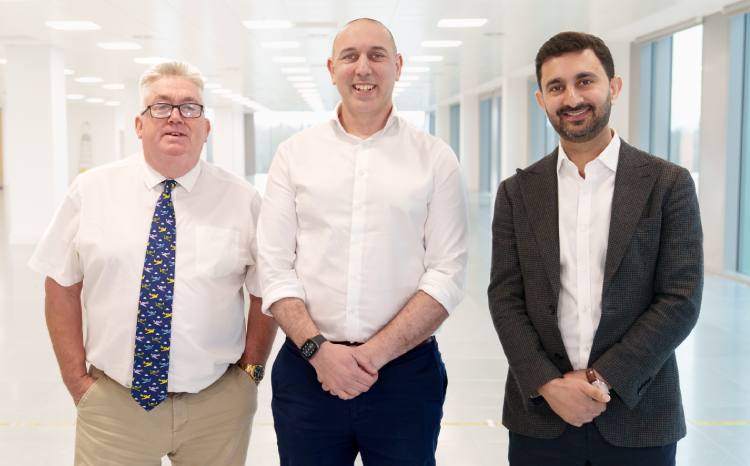Network event: Interpreters wanted
- 12 April 2012

Clinicians do not expect miracles from medicine, so why do they expect so much from IT?
This was the question posed by one participant at the EHI CCIO Leaders Network event held with the NHS Clinical Leaders Network at the end of March.
Around 40 participants at the event at Cerner’s collaboration centre in London felt that a key part of the answer was the lack of understanding and communication between clinicians and IT specialists. And this is where a chief clinical information officer comes in.
Bridging the clinician / IT person gap
The event was the first of a series to support the new network, which has been set up to further the aims of the EHI CCIO Campaign, to support the six CCIOs already in place in England, and to encourage more.
With the case for CCIOs established by the campaign, the event focused on the skills and professional development that clinical champions for IT and information projects will require.
A clinical background was seen as essential for being able to understand how the health system works, and for being able to communicate the needs of clinicians to IT people.
A number of participants at the London event said a CCIO should act as an “interpreter” between clinicians and informaticians – a word that comes up often when talking about the role.
When they were asked to list the attributes of a successful CCIO, participants soon filled the large white notepads sitting on every table. Their ideas were impressive; although perhaps a little daunting for anybody looking at the role for the first time.
There was general agreement that a successful CCIO must be good at managing conflict, have excellent leadership skills, and command respect and authority amongst clinical colleagues.
But most of all, they must be passionate and interested. “They need to bring people with them because there will be a lot of push back,” one participant said.
Leadership and enthusiasm key skills
The level of technical knowledge needed was a topic for debate, with some people saying only a basic level of IT understanding was necessary, while others felt a high degree of technical expertise was essential.
London GP Dr Phil Kozcan told an attentive audience that he did an MSc in clinical informatics and found it very useful in his role as CCIO at academic health science partnership UCL Partners. He added that IT training should be an important part of an undergraduate’s medical education.
“At UCL Partners, we are beginning to look at how we can influence the education of clinicians across the spectrum,” he said. “I think it’s going to be a difficult journey, but vitally important and by showing outcomes and values it’s going to become an easier task to do.”
Dr Kozcan said that CCIOs not only need to get clinicians and IT people to speak the same language, but to make sure they co-develop systems that meet clinical needs.
“I’m seeing lots of very impressive, but locally focused projects,” he said. “When they work they are often dependent on one or two very keen individuals. If they move on, the project falls to the wayside.
“We need to plan how to drive these projects out at scale, learn from some of the problems that arose within the National Programme for IT in the NHS, and create space for innovation.”
Dr Kozcan added that he thought the biggest challenge to making this happen was cultural, so it was “very important that people get involved” and help their IT colleagues to take things forward.
But he warned that a CCIO should be prepared to make a considerable investment of time and to take risks.
“I made the decision to go from [regarding] informatics as a hobby that I did in my spare time to cutting down my clinical time. Now, I spend only 1-1.5 days a week seeing patients – it’s a massive switch.”
Executive support essential
Potential differences between the first wave of CCIOs and subsequent appointments were highlighted by one participant group, whose members felt the first wave need to be “pioneers”. They felt the pioneers – such as Dr Kozcan – would need a higher level of both clinical expertise and IT knowledge than those that followed behind them.
But all the participants agreed that they would need the backing of their trust’s executive. One of the events’ keynote speakers, Andrew Coley, agreed.
Dr Coley is the chief clinical director for health informatics in the North West and became a CCIO in 2007. He talked about a scheme set up in the North West – called Clinical Health Informatics Leads -which had failed.
And he said this happened not because it failed to attract interested and enthusiastic clinical information leaders, but because they did not have the authority within their trusts to actually get things done.
“If these people can’t actually make change in an organisation then they get disheartened and stop trying,” he said.
He added that CCIOs would also need to be resilient. “Be prepared for clinicians to be negative, for disagreement and active resistance,” he warned; while adding there were still great gains to be made from effective engagement.
“Leadership and engagement go together, it doesn’t always mean people at the top, it means leaders on wards and community teams and people who will influence the wider cohort to get wide scale change.”
Get involved
EHI editor Jon Hoeksma concluded by acknowledging that CCIO is a tough role; but the level of interest in it is “extremely heartening.”
Referring back to the launch of the network by health secretary Andrew Lansley, he said it was clear there was central government backing for the idea; even though a central edict telling trusts to appoint a CCIO and central funding are unlikely.
He urged people to get involved in the EHI CCIO Leaders Network via the EHI website and to help shape future events through suggestions for speakers and topics to discuss.
The network will be holding a series of events on everything from building a career pathway for CCIOs to their role in specialities such as midwifery and mental health, culminating in the first annual CCIO conference at EHI Live 2012 in Birmingham in November.




